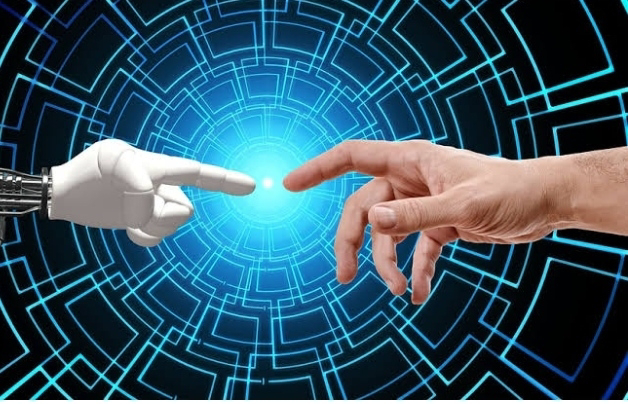Artificial Intelligence (AI) has the potential to revolutionize society and bring about numerous benefits. However, like any transformative technology, it also poses several threats to human society. Here are some key concerns:
1.Job Displacement: One of the most immediate and widespread concerns is the displacement of human jobs by AI-driven automation. As AI systems become more advanced, they can perform tasks more efficiently and accurately than humans. This could lead to unemployment and economic inequality, as certain job sectors might be entirely automated, leaving many workers without employment opportunities.
2.Ethical Concerns: AI raises a host of ethical issues, particularly in areas like data privacy, bias, and transparency. AI systems often rely on vast amounts of data, and if that data is not properly secured, it can lead to privacy breaches and misuse of personal information. Additionally, biases present in the training data can result in discriminatory or unfair decision-making, perpetuating societal inequalities.
3.Autonomous Weapons: The development of AI-powered autonomous weapons is a significant threat to global security. These weapons could make decisions and operate without direct human control, leading to unpredictable and potentially catastrophic consequences. The lack of human oversight raises serious moral and ethical dilemmas about the use of lethal force.
4.Lack of Accountability: AI decision-making processes can be complex and difficult to interpret, leading to a lack of accountability. If an AI system makes a wrong decision, it may be challenging to determine who is responsible, especially in cases involving AI algorithms developed by multiple organizations or using third-party data.
4.Economic Imbalance: The deployment of AI technology is costly, which means that wealthier individuals and organizations are more likely to have access to the latest AI advancements. This can further widen the gap between the rich and the poor, exacerbating existing socioeconomic inequalities.
5.Security Vulnerabilities: As AI systems become more integrated into critical infrastructures like healthcare, transportation, and finance, they also become potential targets for cyber-attacks. Hackers might exploit vulnerabilities in AI algorithms to manipulate decisions or disrupt crucial systems, posing risks to public safety and national security.
6.Dependence and Over-Reliance: Over-reliance on AI systems could make humans complacent and less capable of performing tasks without technological assistance. In certain scenarios, this dependence could lead to human skill degradation and the inability to cope with situations when AI is unavailable or malfunctioning.
7.Existential Risks: Some experts warn about the potential existential risks posed by superintelligent AI, which could surpass human intelligence and lead to unforeseen and uncontrollable consequences for humanity. While this scenario is more speculative, it remains a subject of concern among researchers and policymakers.
8.Social Isolation: The integration of AI-powered technologies into daily life, such as virtual assistants and social robots, might lead to increased social isolation. People might prefer interactions with AI systems over human relationships, impacting social dynamics and mental well-being.
Addressing these threats requires a multi-faceted approach, including robust regulatory frameworks, transparency and accountability in AI systems, investment in retraining and reskilling the workforce, and ongoing research into AI safety and ethics. It is crucial to strike a balance between embracing the potential benefits of AI while mitigating the risks to ensure that AI enhances human society rather than harm it.








0 Comments